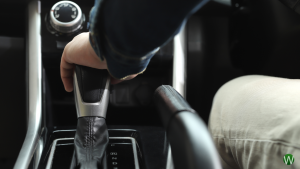One of the biggest failings of cautious drivers is that of driving too slowly. In a world where the streets are dotted with speed cameras and policemen crouching behind thickets with speed guns, it is understandable that people think of driving too quickly, not slowly, as the biggest danger on the roads.
In fact, driving too slowly is the tenth most common reason for people failing their driving test (http://www.learners-guide.co.uk/articles/reasons-people-fail/). Why is this?
Annoying your fellow road users
Where drivers feel they are being held up, they are more likely to tailgate, beep their horn, and take risks to get around you by pulling into the oncoming lane.
Other road users will drive more erratically as they lose patience. This will make their behaviour more difficult to predict on ring roads and roundabouts, and at intersections, where drivers need to be able to gauge the speed and intention of oncoming traffic.
Slow driving is a big danger
In a recent report, it was found that half of drivers were likely to overtake a vehicle driving too slowly, and even to contemplate undertaking where a slow vehicle was occupying the fast lane (http://www.dailymail.co.uk/news/article-2016721/Slow-drivers-dangerous-roads-cause-crashes.html).
When other road users turn a corner and quickly catch up to a slow driver in a residential area, they may have to brake too suddenly and thereby trigger a domino effect in which all of the subsequent traffic has to brake as well. Because reaction times vary, this is more likely to cause a greater number of crashes than speeding – in which the greatest risk is posed to yourself and one other driver.
It increases your anxiety
If you are nervous, driving too slowly is likely to increase your anxiety, since you will cause traffic to build up and thereby attract unwanted attention.
Nobody wants to have their focus disrupted by angry drivers gesturing and shouting abusive language. Studies suggest that for many drivers, road rage is a subconscious process that they cannot entirely control (https://www.psychologytoday.com/blog/the-act-violence/201301/the-psychology-road-rage).
While most drivers will look at your L Plates and strive to accommodate you, there will always be that irritable, petulant individual who only cares that they are being held up.
You will be marked down
By driving slowly you are likely to be marked down by your examiner, who will be able to tell that you lack competence. You might be driving slowly to ensure that you pass your test, but this is misguided, since where you drive hesitantly your examiner will see a lack of skill.
Believe it or not, slow driving is likely to be marked as a fail-worthy driving fault, in the same category as stalling the engine or mounting the pavement. This is only where the slow driving is persistent and a danger to other road-users. However, it is better to drive the requisite speed than to risk dipping below what the examiner deems acceptable.





